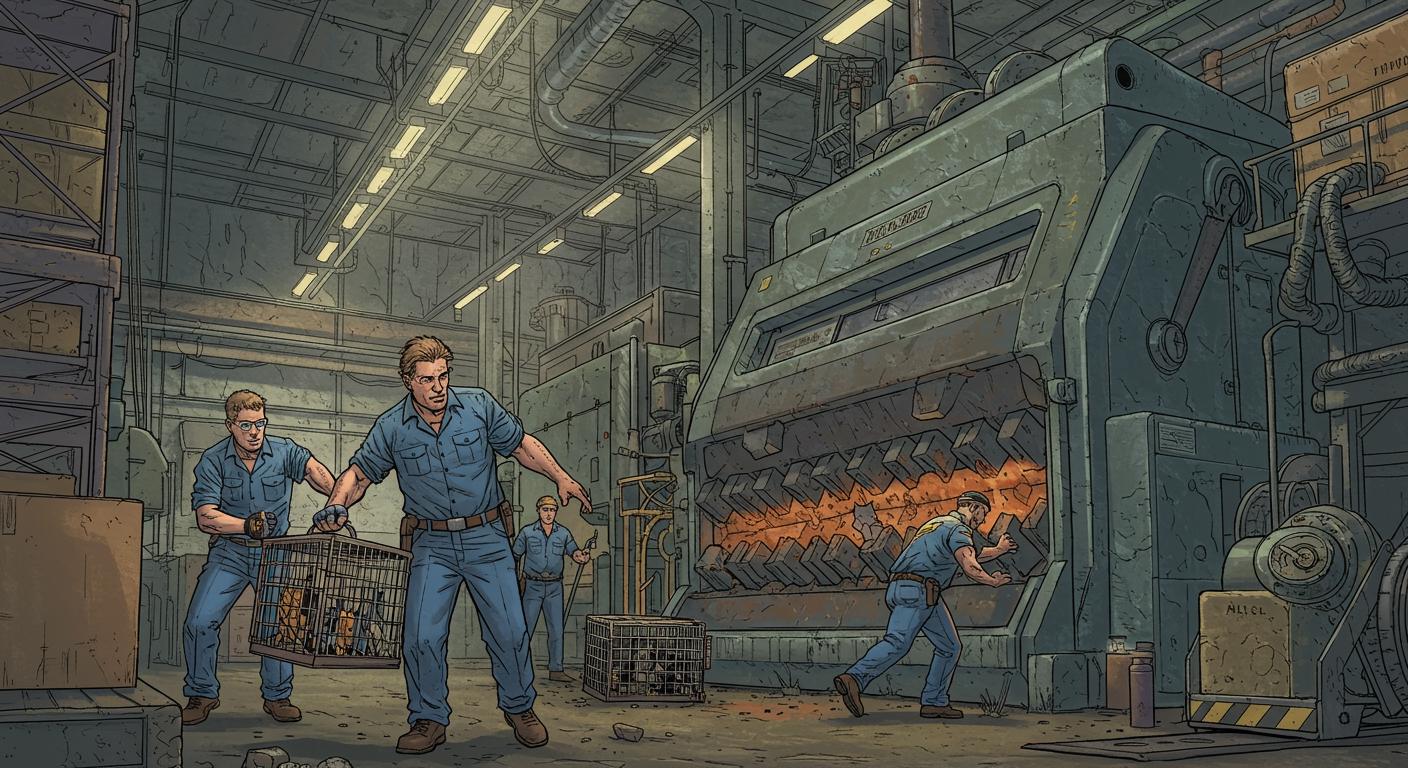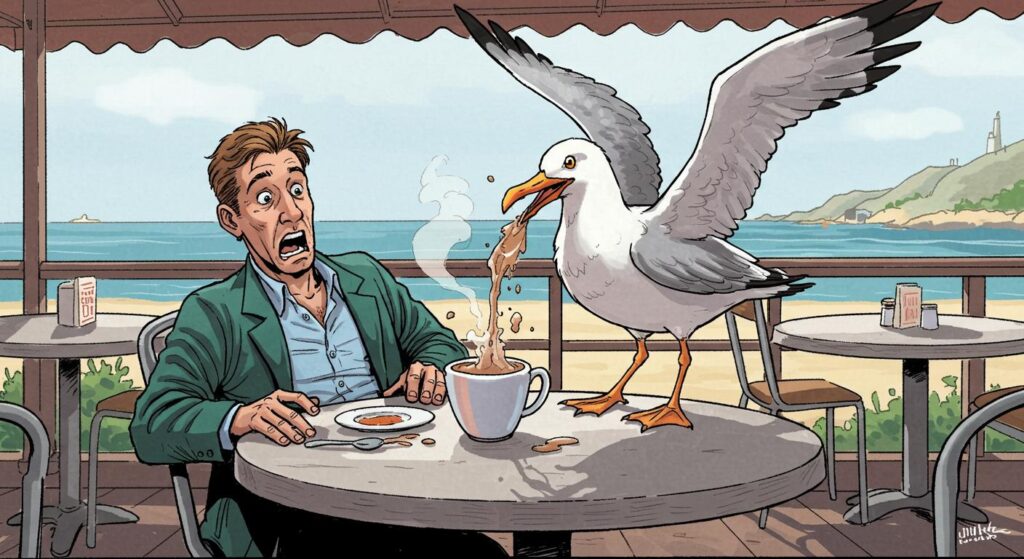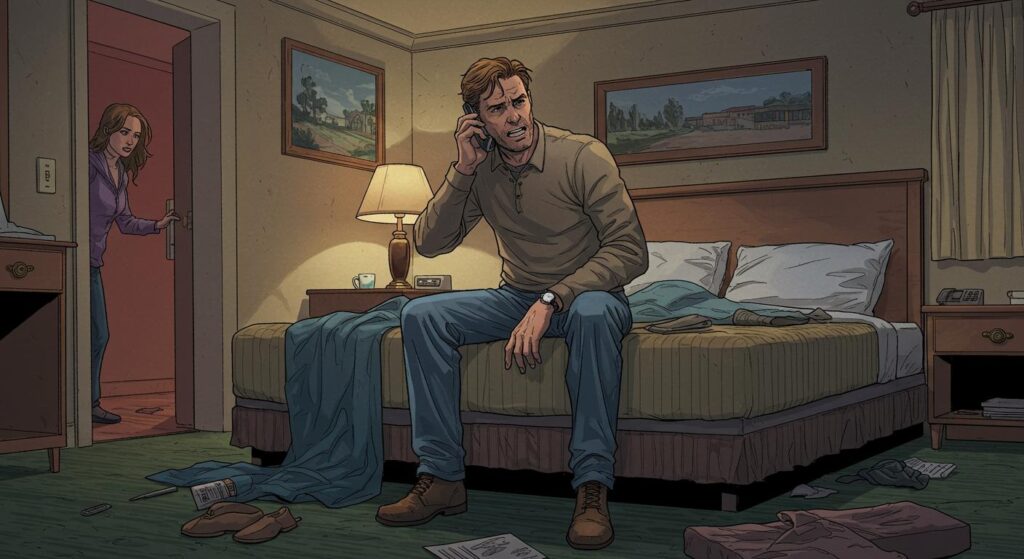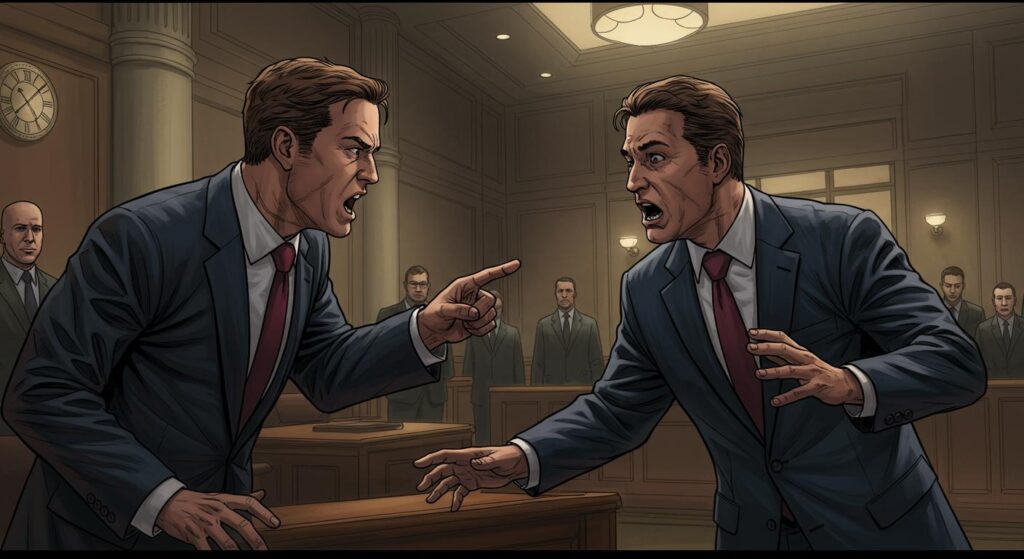Sometimes, the headline writes itself, and sometimes you have to double-check several sources to confirm that, yes, this happened in the reality we all supposedly share. This week, the peculiar and frankly disturbing saga out of Middlebury, Indiana—where three employees of RV manufacturer Jayco are facing felony charges after putting live stray cats into a trash compactor—lands squarely in the latter category. It’s an incident that asks as many questions about common sense as it does about compassion.
Stray Cats and Stunning Decisions
Piecing together the particulars—drawing on both WSBT and WNDU, which both reviewed court documents and statements—the story unfolds like a grim, ill-advised flowchart. On February 27, three Jayco workers—John Lipscomb, Travis McKay, and Arlin Hochstetler—were faced with what they deemed a “stray cat problem” at the RV facility. The solution they chose is so starkly at odds with any animal welfare protocol (or, for that matter, basic empathy) that it could leave even the most seasoned researcher of oddities blinking.
According to the combined reporting, Lipscomb admitted to police that he placed two still-living cats into a microwave box and taped it shut. McKay and Hochstetler reportedly then took the box and placed it into a trash compactor, with all involved fully aware of the cats’ condition. In a detail flagged in both outlets, McKay explained to authorities that local animal shelters were full, and he thought he could “take care” of the situation through other means. Hochstetler, meanwhile, told officers he and Lipscomb didn’t intend the animals to suffer—but, in what might be the understatement of the year, they considered the cats a nuisance and wanted to resolve it.
The disquieting part—well, one of them—is how methodical the process seems, as described in police records. One has to wonder: Was there ever a pause, mid-taping or mid-loading, where the archival part of someone’s brain screamed, “Surely there’s another way?”
Fallout, Finger-Pointing, and Company Response
When news of the charges broke, Jayco moved quickly to sever ties and communicate its position. Both outlets document a company statement emphasizing that animal cruelty isn’t condoned, and that all three workers have been terminated. Jayco asserted, “We take this matter very seriously, and do not condone the actions of the three individuals involved or animal cruelty of any manner. Their employment with the company has been terminated. Immediate measures were taken and continue to be executed to educate employees on appropriate procedures and company expectations.”
There’s a more convoluted wrinkle woven throughout both WSBT and WNDU’s coverage: police affidavits claim Jayco’s Vice President of Operations, Devon Miller, initially remarked that the workers “acted in the company’s best interest.” However, in a detail highlighted and echoed by both outlets, Jayco contends that Miller was “grotesquely misquoted.” The company says it is seeking the original materials from law enforcement to clarify what was really said and maintains neither Miller nor Jayco’s leadership condone the behavior alleged.
As previously reported, confusion around the company’s stance prompted further media questions, with prosecutors telling WNDU that they continue to review how the quote ended up in official documents. The drama at the corporate level here nearly matches the grim storyline at ground zero.
Reflections in the Dumpster’s Shadow
From the vantage point of someone used to spelunking into humanity’s stranger archive corners, it’s tempting to seek hidden logic or obscure policy gaps that might explain this. But sometimes the records are plain: three adults, a taped box, a trash compactor, and a stack of dubious choices. The justification—shelters too full, nuisance animals—has a sad familiarity to anyone following animal control dilemmas, but it doesn’t elevate mechanical cruelty to anything but what it was: a shocking failure of imagination and decency.
Stray cats on industrial property are an old problem, one with solutions ranging from local animal control outreach to volunteer-based relocation programs (you’d be amazed at the obscure grant funding for feral cat management that a quick search can unearth). The real oddity here may be not that it went wrong, but that at no point did resourcefulness—or even the internet’s most basic advice—make it into the decision tree.
Legal consequences are already piling up, with each worker facing two felony counts for torturing or mutilating a vertebrate animal, as both sources confirm. Jayco is now in full corporate-refresher mode. Meanwhile, observers across the web are left gaping at another entry in the annals of “choices that absolutely did not need to happen.”
Sometimes, a story’s lesson is buried under a heap of procedural missteps and conflicting statements. But here, it’s oddly straightforward: in the world of problem-solving, a minute’s pause—and a passing glance at established protocol—can mean the difference between routine nuisance control and charges that make national headlines. Does the compactor saga reflect a singular lapse, or the kind of blind corner that emerges when curiosity, empathy, and critical thought are nowhere to be found? The answer, for the curious and the incredulous alike, might be one for the files.







